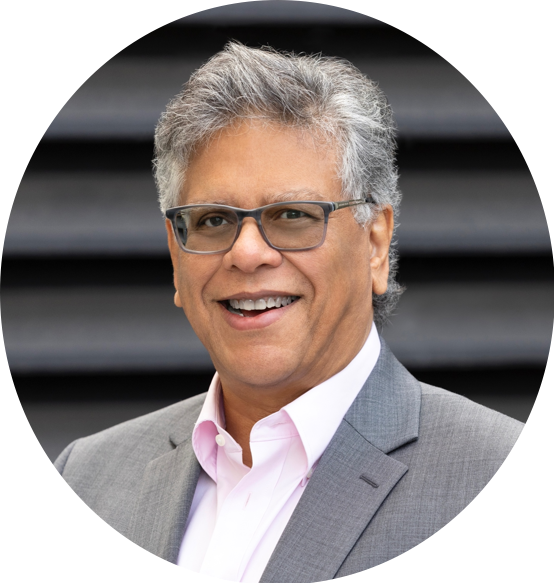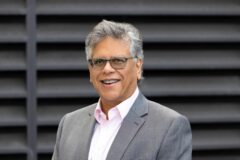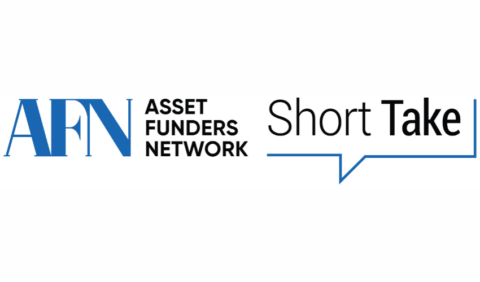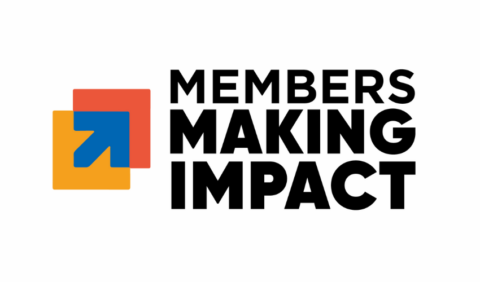
FROM THE PRESIDENT AND CEO
May 2025
In a moment when many are pausing to reassess the most effective path forward, AFN and its members are standing firm in our values. Our focus is to help more families—across race, ethnicity, and gender—move into the security of the middle class, remain there confidently, transfer wealth to the next generation, and build pathways for economic security for their children and grandchildren. This means advancing policies and investments across interrelated issues that are inclusive, equitable, and built for today’s America—not yesteryear’s. We are a more diverse, complex, and interconnected nation than ever before with the potential for an abundant economy, yet our federal budgets and political leadership continue to ignore this reality. Instead of meeting this moment with forward-looking solutions, we see proposals cutting critical services for low-income and working class families while delivering deficit-expanding tax breaks to the wealthiest. Against this backdrop and growing economic uncertainty that could paralyze advocacy and action, our values provide clarity. Every day, AFN members, our peers, and fellow advocates reaffirm their focus and commitment to the values of a just, inclusive, abundant economy—not just in words, but through sustained actions.
The commitment to be better—to work together toward an equitable, abundant economy and to foster a culture where everyone, especially every child, has meaningful access and opportunity regardless of race, ethnicity, gender or zip code— continues to guide our vision for the future in this country. Imagining a thriving, growing economy that is inclusive and equitable in how economic security and wealth is distributed is fundamental to realizing the American dream. Part of that includes creating values-based budgets where we all pay our fair share to fund the investments that create pathways and inclusive supports for low- and moderate-income American households: affordable education, health, housing, income and savings security, climate resilience, and affordable capital. Only then can we realize an abundant economy where you and I do better because everyone does better.
Especially now, the voices and action of philanthropy matter. We are surrounded by actors designing new systemic actions to take us back to a time when freedom, economic opportunities, and civil rights were undermined in the interests of the wealthiest. The opponents of an inclusive economy—those who demonize hard-working immigrants and resist extending equitable economic rights and supports to everyone— have embraced a scarcity mindset. Sadly, too many members of both political parties have embraced a scarcity mindset where everything is zero-sum. When you can’t imagine that if everyone doing better means we all do better, then sabotaging “the other” seems prudent. When the scales are tilted from scarcity framed self-interest, acquiescence, or misplaced short-term preservation, it becomes too easy to attack those who are “different” or othered and fail to see who actually benefits from injustice and inequity.
This mindset fuels resistance to inclusion and undermines the very idea of a shared social contract where we can and will provide the means to gain health care broadly, to end hunger, or provide meaningful economic and wealth-building opportunities to everyone. Many Americans have been convinced that we cannot grow the pie, which leaves us fighting over the remaining slices. Yet balancing any budget (federal, state or your household) involves seriously considering the revenues and expenses, not just focusing on revenue reductions and dire expense cuts. A values-aligned, equitable vision would spur investment capital for business startups and entrepreneurs and foster low- and moderate-income household wealth building and equitable economic expansion instead of what the Congress and leaders in some states are considering.
To provide lasting repair and redress, we have to keep defining a different system with different outcomes that have demonstrably equitable and abundant results. It will require continued funding of economic strategies that are cross-sector and community-focused. We will need to repair, rebuild, and reinvent economic opportunities for future inclusion and justice. Most future politicians will follow success, not lead it—so the work must begin elsewhere. Philanthropy, along with financial institutions and other systemic stakeholders, has a critical role to play, working together, developing the shared future vision, convincing communities it is sustainable, and moving us forward bending the economic arc to inclusive justice.
This values-based vision is what informs and powers AFN. Join our more than 200 institutional members to sustain the path toward an abundant future.



